Mobius 2019 Piter: free online broadcast and everything else
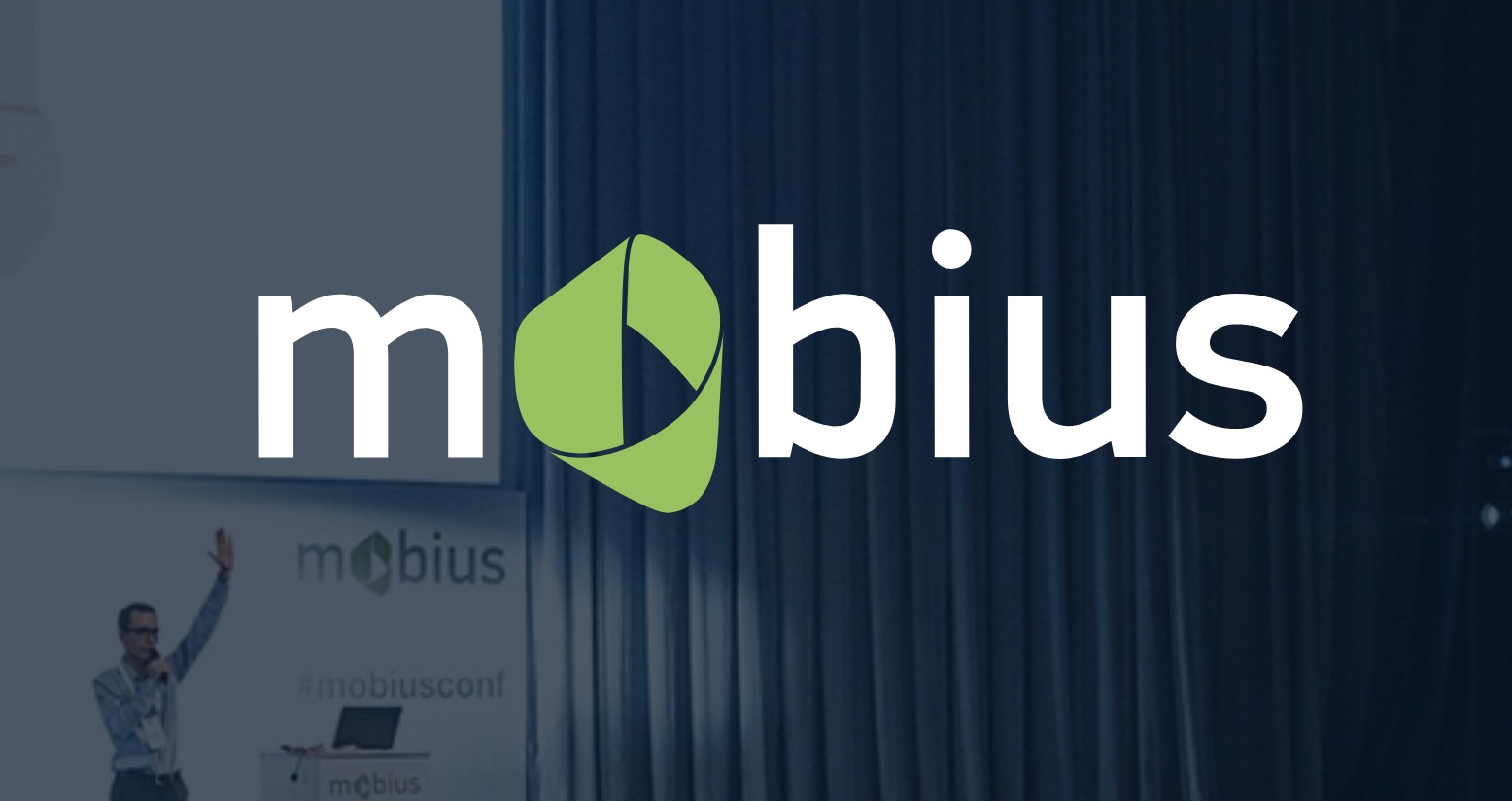
On the eve of our conference on mobile development Mobius, we share with Habr a link to a free YouTube-broadcast (under the cut) and tell which reports will get into it (spoiler: they are mostly android).
And we also talk about everything else at the conference, which will not go into the open broadcast. What can you get only by going there personally?
Free Live Webcast
There is a special page on the conference site, where both the YouTube-window with the broadcast and its schedule are located.
')
The broadcast will go on May 22 (the first of two days of the conference), and reports from the main hall will be included in it. What are these reports? Immediately, four of the six turned out to be “android”, and the remaining two were opening and closing speeches that are not tied to a specific platform at all and consider the development as a whole. Here are specific descriptions:
10:30 Andrei Breslav - Empathy in IT: how to rationally use its human nature
 In the mobile development, the creator of Kotlin no longer needs to be presented to anyone, and on one of the previous Mobius his report “On the shoulders of giants: the languages with which Kotlin studied” became the leader in viewers' ratings. But this time the topic is completely different. This presentation will take place before everyone dives headlong into the technical hardcore of subsequent reports, and it addresses more general issues. Andrei will talk about how emotions work at IT and how we should take this into account in order to work more efficiently. Such questions interest him for a long time and deeply - for example, in addition to Kotlin, he is also busy with the startup Alter, which helps people find a psychologist / psychotherapist.
In the mobile development, the creator of Kotlin no longer needs to be presented to anyone, and on one of the previous Mobius his report “On the shoulders of giants: the languages with which Kotlin studied” became the leader in viewers' ratings. But this time the topic is completely different. This presentation will take place before everyone dives headlong into the technical hardcore of subsequent reports, and it addresses more general issues. Andrei will talk about how emotions work at IT and how we should take this into account in order to work more efficiently. Such questions interest him for a long time and deeply - for example, in addition to Kotlin, he is also busy with the startup Alter, which helps people find a psychologist / psychotherapist.12:00 Hannes Dorfmann, Kostiantyn Tarasenko - Testing by Design

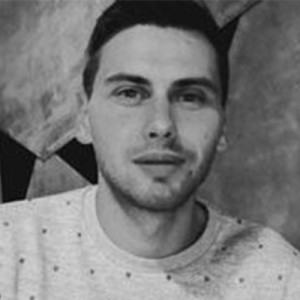 Testing is not easy. Design patterns like MVP or MVVM contribute to the separation of responsibilities, so that it becomes easier to write the code under test, but can you go a step further? How can you squeeze more out of the tests, achieving results with less code? How to take into account testability in the project immediately, and not to think about it last? How to build an architecture that is immediately designed to test the code? The report will talk about this architecture.
Testing is not easy. Design patterns like MVP or MVVM contribute to the separation of responsibilities, so that it becomes easier to write the code under test, but can you go a step further? How can you squeeze more out of the tests, achieving results with less code? How to take into account testability in the project immediately, and not to think about it last? How to build an architecture that is immediately designed to test the code? The report will talk about this architecture.14:00 Konstantin Tskhovrebov - Reactive errors, or Retry-dialogue in one line of code
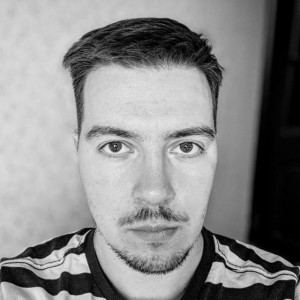 In this report, Konstantin and the audience:
In this report, Konstantin and the audience:- consider a fairly typical task with the Retry-dialogue;
- will study the classical methods of solution and discuss their disadvantages;
- will come up with a practical solution, in passing, having figured out what reactive programming is (and no, it is not RxJava);
- look at what happened and turn it into a general solution for handling any errors in the application;
- discuss the result.
16:00 Stepan Goncharov - Gradle pipeline optimization: Beyond basics
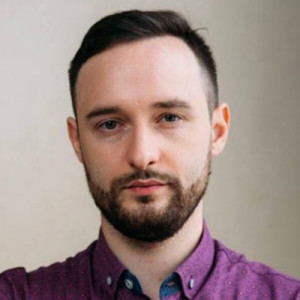 Developers always think that programs are not assembled fast enough, and they use all the known tricks and techniques to speed up. Most of these techniques are listed in the Android and Gradle documentation. But what to do if you have already used everything you could, and the result did not suit you?
Developers always think that programs are not assembled fast enough, and they use all the known tricks and techniques to speed up. Most of these techniques are listed in the Android and Gradle documentation. But what to do if you have already used everything you could, and the result did not suit you?Well, there are always other techniques that Stepan will share.
Let's go through the stages of assembly, testing and quality control and see how you can still accelerate the Gradle.
17:30 Yonatan Levin - 640 kilobytes should be enough for everyone
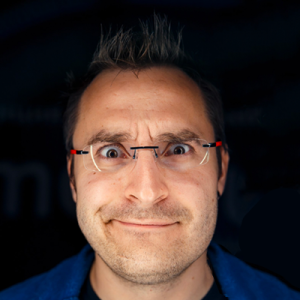 In our time, RAM is getting cheaper every day. PC / Mac with 16 GB of RAM no longer seems out of the ordinary.
In our time, RAM is getting cheaper every day. PC / Mac with 16 GB of RAM no longer seems out of the ordinary.But what about mobile devices? The phone manufacturers are flooding us with amazing features: flagship devices with 4 GB of RAM, 8 GB, even with 16 GB. For a computer, this figure is very important - but is it true for a smartphone? If I have 8 GB of RAM, why does my application still crash due to lack of memory?
In this report, you will learn how Android memory management works, what SWAP, GC, Native Allocations, and other scary words mean.
19:00 Corey Latislaw - The art of intentionality
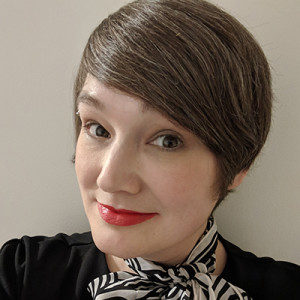 The closing performance of the day echoes the opening. Like Andrei Breslav, Corey will not talk about the specific technologies of mobile development, but about how we generally approach it. Were decisions made by us deliberately taken as optimal, or did we often live “on autopilot”, and is it worth changing?
The closing performance of the day echoes the opening. Like Andrei Breslav, Corey will not talk about the specific technologies of mobile development, but about how we generally approach it. Were decisions made by us deliberately taken as optimal, or did we often live “on autopilot”, and is it worth changing?All the rest
Open broadcast is limited to the above - but the conference is not limited. What else will be on it?
Other reports
The first day reports from the main hall are broadcast in open broadcast. In total, the conference takes two days, and it has three halls - so that the total number of reports is several times more. We will not retell the whole program here - you can simply open it on the site and see everything. And here we select the main thematic blocks and give some examples:
- Best practices. For example, Android developers will talk about working with Kotlin corsets , and iOS developers about working with Auto Layout .
- Architecture. In the past, Mobius Artyom Zinnatullin shared the fact that his experience at Lyft helped him learn about the means of assembly - and now Denis Neklyudov from the same Lyft will talk about scalable architecture.
- Testing. For example: the topic of the report by Dmitry Sidorenko is “Automation of testing mobile applications in the cloud”.
- Internals. It is sometimes translated into Russian as “guts” - well, let's understand how everything under our hood works that we regularly use. For example, iOS developers Alexander Shalamov will help to understand what path their code takes from the editor window in Xcode to the iPhone screen.
If you are not going to go to the conference, but understand that you are interested not only in reports from the free broadcast - there are online tickets . With them there is a broadcast for both days with the possibility of choosing a hall, and after the conference you quickly receive videos of all the reports.
Discussion areas
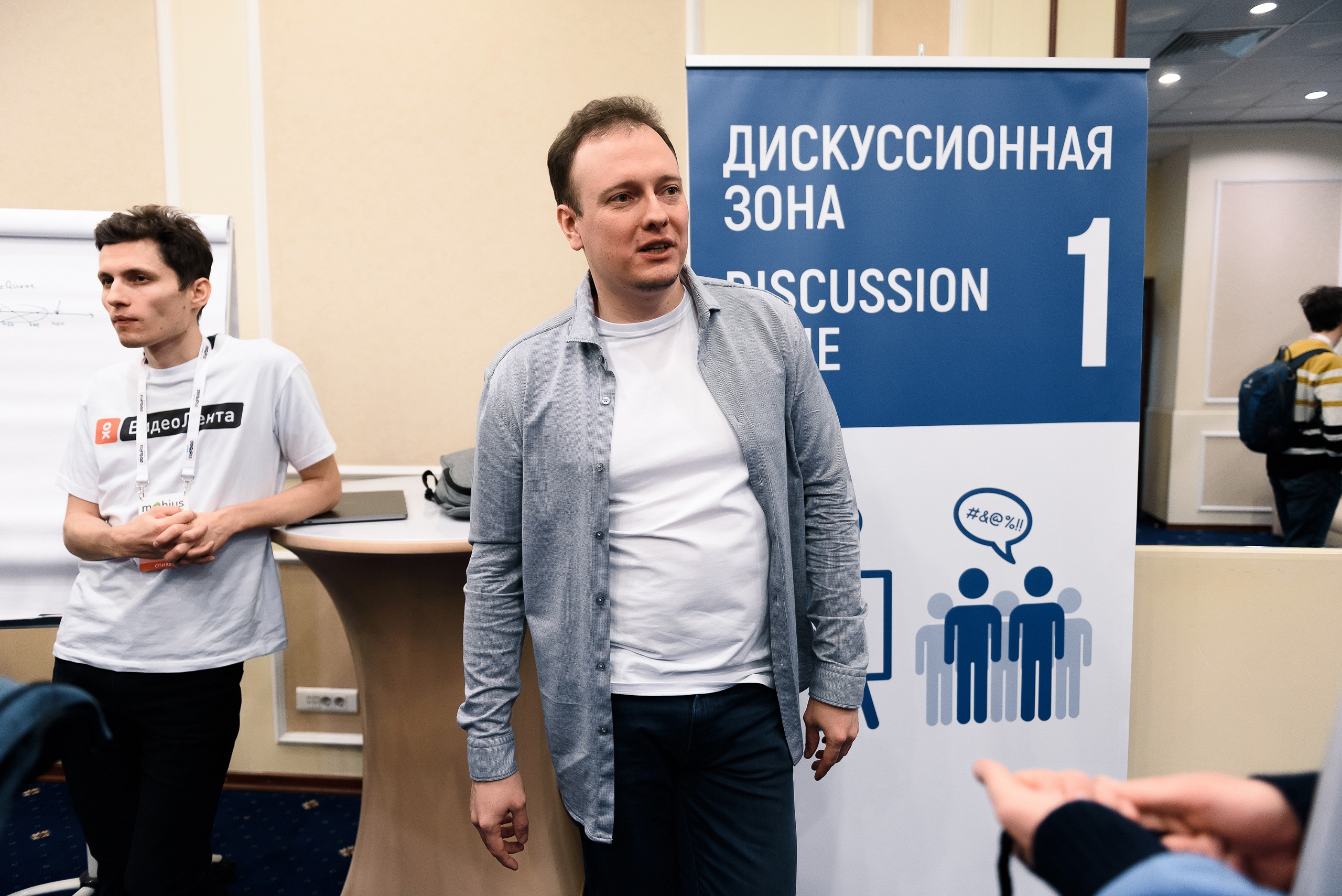
And now we come to what is not available even with online tickets. After us, each speaker after his report moves to a special “discussion zone”, where he can answer questions from the audience not for five minutes, but as follows: there is a time margin and a flipchart.
BOF sessions
Another form of live communication is the BOF session. There, some speakers and all interested viewers come together to discuss a predetermined topic. And instead of a strict division into speakers and spectators, there is a single lively discussion.
In the evening of the first day of the conference, after the presentations, there will be two such sessions: in English with the participation of English speakers - “What awaits mobile development in 5 years?”, In Russian with Russian speakers - “Salaries of mobile developers”. In general, having downloaded technical reports in a day, it will be possible to discuss related things in the evening in a more relaxed and informal atmosphere.
A party
If you want to communicate not in some predetermined format (“questions to the speaker” or “BoF-session”), but just talk to other mobile developers, this can be done at a party at the end of the first day. To the music and with beer, taking a break from the reports, it is much easier to communicate with strangers than on coffee breaks.
Exhibition
And, of course, there will be stands of sponsoring companies (for example, CFT) - where usually there are smart tasks, stickers, and various activities. And on the special “demo stage” stage, which is not broadcast, companies can make mini-presentations and sum up draws. So in the breaks between reports, even if you have no one to talk to, will have something to do.
Summarizing
In general, for the audience there are three options:
- If you want to see the reports of the first day from the first hall - free broadcast will help.
- If it's not enough, I want to get all the reports live and recorded - online tickets are available.
- And if there are too few reports, I wanted to personally take part in the activities, and you are ready to make bold decisions at the last moment - regular tickets are also still available.
We are waiting for tomorrow's meeting with one of you offline, and with others online.
Source: https://habr.com/ru/post/452780/
All Articles